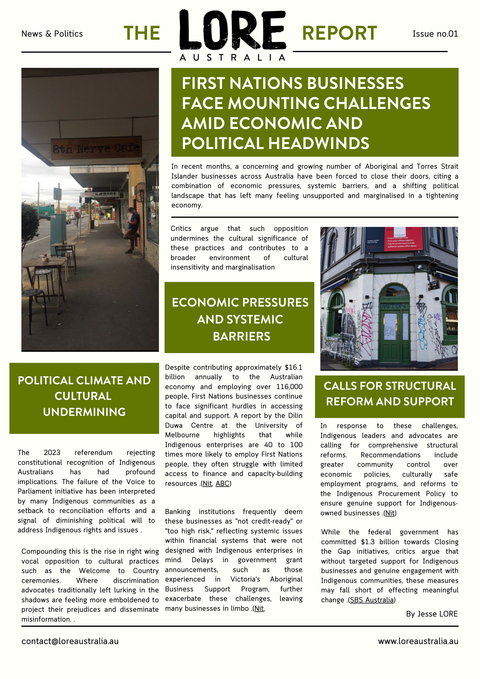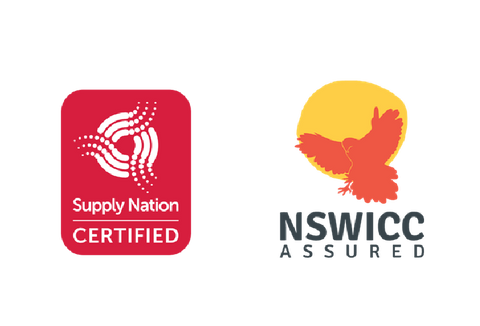In recent months, a concerning and growing number of Aboriginal and Torres Strait Islander businesses across Australia have been forced to close their doors, citing a combination of economic pressures, systemic barriers, and a shifting political landscape that has left many feeling unsupported and marginalised in a tightening economy.
Economic Pressures and Systemic Barriers
Despite contributing approximately $16.1 billion annually to the Australian economy and employing over 116,000 people, First Nations businesses continue to face significant hurdles in accessing capital and support. A report by the Dilin Duwa Centre at the University of Melbourne highlights that while Indigenous enterprises are 40 to 100 times more likely to employ First Nations people, they often struggle with limited access to finance and capacity-building resources .(Nit, ABC)
Banking institutions frequently deem these businesses as "not credit-ready" or "too high risk," reflecting systemic issues within financial systems that were not designed with Indigenous enterprises in mind. Delays in government grant announcements, such as those experienced in Victoria's Aboriginal Business Support Program, further exacerbate these challenges, leaving many businesses in limbo .(Nit, Nit)
Political Climate and Cultural Undermining
The 2023 referendum rejecting constitutional recognition of Indigenous Australians has had profound implications. The failure of the Voice to Parliament initiative has been interpreted by many Indigenous communities as a setback to reconciliation efforts and a signal of diminishing political will to address Indigenous rights and issues .(Wikipedia)
Compounding this is the rise in right wing vocal opposition to cultural practices such as the Welcome to Country ceremonies. Where discrimination advocates traditionally left lurking in the shadows are feeling more emboldened to project their prejudices and disseminate misinformation. Critics argue that such opposition undermines the cultural significance of these practices and contributes to a broader environment of cultural insensitivity and marginalisation.
Calls for Structural Reform and Support
In response to these challenges, Indigenous leaders and advocates are calling for comprehensive structural reforms. Recommendations include greater community control over economic policies, culturally safe employment programs, and reforms to the Indigenous Procurement Policy to ensure genuine support for Indigenous-owned businesses .(Nit)
While the federal government has committed $1.3 billion towards Closing the Gap initiatives, critics argue that without targeted support for Indigenous businesses and genuine engagement with Indigenous communities, these measures may fall short of effecting meaningful change .(SBS Australia)
As First Nations businesses continue to navigate these complex challenges, the need for systemic change and genuine support becomes increasingly urgent to ensure their sustainability and growth in Australia's economic landscape.


